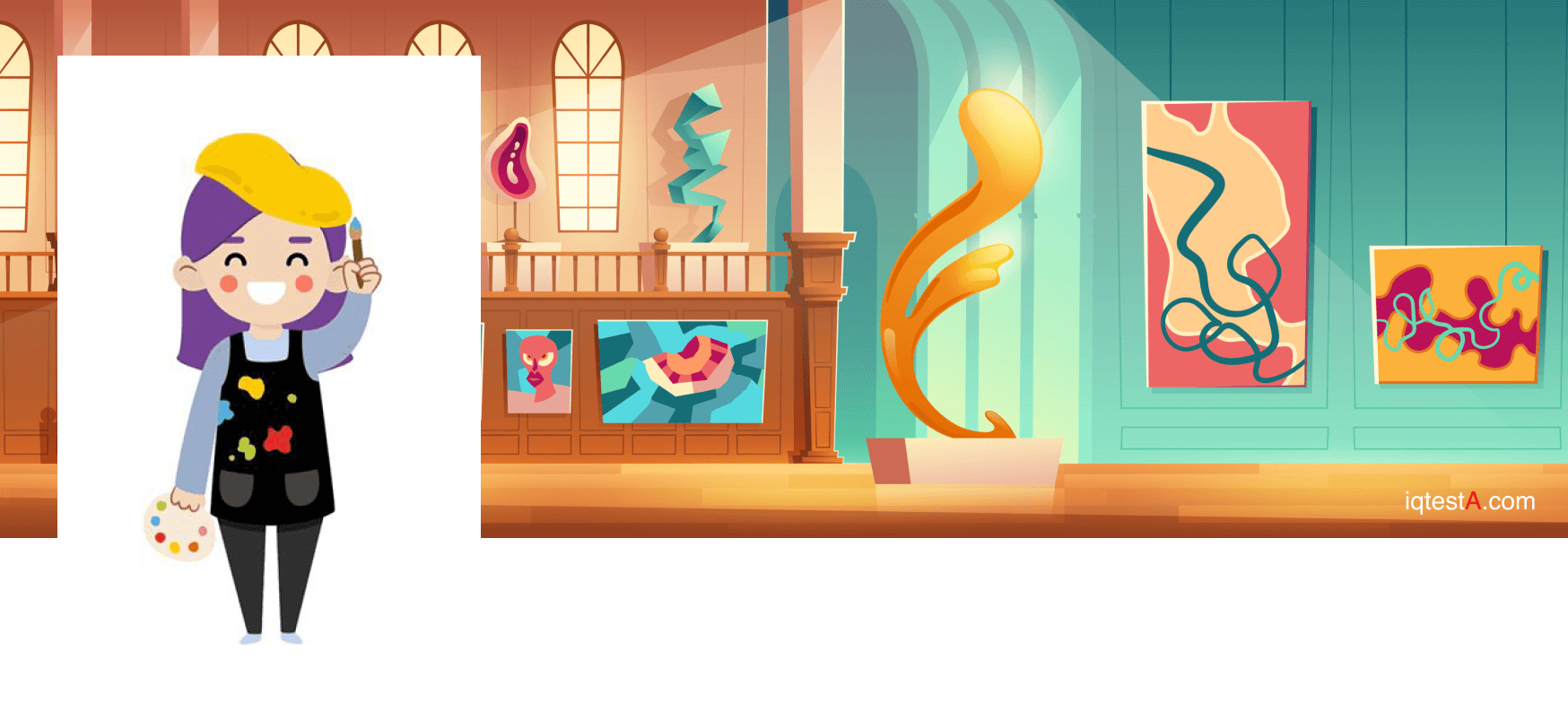ISFPs
The Composer

What is ISFP?
ISFP stands for Introversion, Sensing, Feeling, and Perception and is one of 16 personality types studied from the MBTI personality identification indicator (Myers-Briggs Type Indicator). The MBTI personality assessment developed by Isabel Briggs Myers, Katharine Cook Briggs and David Keirsey from the work of renowned psychiatrist Carl G. Jung the types of psychology based on theories of cognitive functions. Keirsey named ISFP The Composer because they have an innate sensitivity to creating works of art. ISFP is one of four personality types of the group The Artisan.
What are the personality traits of the IFSP group?
The MBTI assessment accurately estimates about 75% according to its guiding indicator, using multiple-choice questions on the basis of four "binary" (opposing psychological pairs), ISFP is one of 16 personality types and is abbreviated by the first four letters (iNtuition is an exception because I is used for Introversion) as follows:
-
Introversion: introverted, tend to like tranquility and prefer to interact only with close friends. They feel wasted a lot of energy when socially interacting with unfamiliar people;
-
Sensing: using specific perception rather than intuition, so they focus attention on the small details rather than the big picture, as well as what happens in reality rather than things that have can come in the future;
-
Feeling: making decisions based on feelings, emotional state, personal values rather than based on objective factors or logical rules;
-
Perception: they do not rush to evaluate or soon make an important judgment, instead, they always see the problem in a flexible way and can change depending on the specific situation.
What are the core values, actions, and thoughts of ISFP's personality trends?
ISFPs are peaceful, friendly and easygoing people. Their motto is to enjoy great moments of life and are always optimistic, happy and spontaneous with the flow to embrace what life brings. ISFPs are highly aesthetic, always looking for beauty, they are particularly excellent at using creativity and natural talent in art. The ISFPs, though being quiet, humble, and pleasant, they are still worth their own contribution. They do not like being the focus of attention and like to play a supporting role and share experiences in life.
ISFPs really do well in areas that require an independent approach to the arts. They also tend to be very seductive, mainly because they find it really easy to receive the best compliments - the sensitivity (F) and excellent control of all five senses (S) of the ISFP have helped them a great deal in harmonizing the physical and mental worlds. As a result, ISFPs rarely have trouble connecting with others, despite the fact that they are introverts (I). Even if the ISFPs are truly unpredictable or even reckless, their charm easily strikes the "weapons" of those around them.
ISFPs also need time to withdraw from social interaction and retain something in their minds. This personality trait can often surprise others because people believe that ISFP's spontaneity and enthusiasm mean that they will always want to be "public". However, at the end of the day, ISFPs are still introverts and they need time to regain their physical and mental health. This makes the ISFP more mysterious and unpredictable, even their best friends have difficulty guessing thoughts and reactions of them.
ISFPs also tend to be very sensitive to the feelings of others - they tend to seek harmony in all situations and easily sense a change in someone's emotional state. On the other hand, they can also be extremely competitive and react very badly to any form of criticism. The competitive nature often pushes ISFPs to risks such as gambling or extreme sports - and they also tend to do quite well in these areas, mainly because they enjoy interacting with physical environments.
ISFPs often find it difficult to follow a structured process and can, therefore, perform badly in school. However, their spontaneity and other personality traits make ISFPs very artistic and also give them a great aesthetic talent - people with this type of personality may not excel in the learning environment, but ISFPs can really shine in a field where not only they can use their talents but also it gives them a sense of freedom.
It is worth mentioning that the ISFPs are very determined in pursuing their goals, shaping internal rules and regulations towards those goals. For better or for worse, this helps ISFPs to be free from social expectations and limitations. If the goals of the ISFPs are good and lofty, they can be very selfless, charitable, and inspiring. However, if they decide to pursue a personal goal, they can become selfish, even insidious, doing whatever it takes to achieve their goals. People like this need to be aware of inclinations and questions for their own motivation and ideals over time.
The career of the ISFP personality group
ISFPs prefer a collaborative and polite working environment where they can work quietly with support when needed. Although interested in working independently, ISFPs want their colleagues to be flexible, supportive and loyal. ISFPs are suitable for the following career fields:
-
Education (Preschool Teachers, Administrators);
-
Business, Management, and Sales (Marketing, Human Resource Management, Business Management);
-
Entertainment, Art and Design (Singers, Musicians, Fashion Design);
-
Health Services and Personal Care (Personal Trainers, Nannies, Nurses);
-
Police, Firefighters;
-
Architects, Carpenters, Tailors, Chefs, Goldsmiths.
The relationship between ISFPs and others
ISFPs are courteous in communication, open to those who want to follow the conversation and seek opportunities to contribute with real information. They are easygoing and supportive, do not want to control others and are usually people who pay a good deal of attention.
-
For ISTP, ESFP, ISFJ: they have similar characteristics and many things in common so it is easy for ISFPs to share values, interests, and approaches;
-
For ESTP, ESFJ, ENFP, INFP: they have some differences but these differences are attractive to ISFPs. Basically, they still have something in common to create a balance in their relationship with ISFPs;
-
For ISTJ, INFJ, ENFJ, INTP: At first, ISFPs may have some difficulty accessing and connecting with this personality group. However, if interacting for a while, they will discover commonalities as well as other points of view that can complement each other;
-
For ENTP, INTJ, ENTJ, ESTJ: this personality group is opposite and conflicting with ISFPs, but if it is possible to develop a relationship, this is an opportunity for ISFPs to learn and grow themselves, the challenges always come with great opportunities.
Classify trends in the ISFP personality group
-
Artisan personality groups (SP): ISFP (Composer), ISTP (Crafter), ESFP (Performer), ESTP (Promoter);
-
Guardian personality group (SJ): ISTJ (Inspector), ISFJ (Protector), ESFJ (Provider), ESTJ (Supervisor);
-
Idealist personality group (NF): ENFP (Champion), INFJ (Counselor), INFP (Healer), ENFJ (Teacher);
-
Rational personality group (NT): INTP (Architect), ENTJ (Fieldmarshal), ENTP (Inventor), INTJ (Mastermind).
ISFPs tend to be relaxed, natural, and enjoy life in the present and are not worry much about long-term plans or serious debates. Not surprisingly, people with this type of personality tend to be attracted to and attract people who prefer improvisation, activities, or artistic or recreational interests, rather than an intellectual pursuit. ISFPs also make a few close friends with people who like safe structures and environments - they need a lot of freedom and personal space.
Even though ISFPs like improvisation and relaxed lifestyle, they are introverts. Even if they know how to have fun with friends, ISFPs can be very personal or even shy when meeting strangers. This is their natural defense mechanism - people with this type of personality are very sensitive and may be reluctant to be open for the first time. ISFPs tend to hide part of their emotions or actions, for example, if their behavior or habits are being criticized by their friends - as a result, they do their best to shield the sensitive feelings from people they don't fully trust.
ISFPs are very sympathetic, helpful and tolerant to friends. However, they need to know that their friends are willing to pay back by supporting rather than criticizing them. The nature of the ISFP is to dislike being bound by rules, traditions or expectations, and cannot tolerate people who teach them how they should live their lives.
It is worth mentioning that ISFPs believe in non-verbal action - things that originate from reality, and they care about certain things rather than being possible, should be or will be. This is the main reason why ISFPs have S characteristics rather than N - iNtuition.
In short, ISFPs are very affectionate and sweet, they are always serious about their commitments and looking for long-term relationships. ISFPs belong to a discreet group of people and they do not want to let people know what they think. This causes ISFPs to tend to follow other people's feelings in relationships and can create problems if the other party does not understand the feelings of them. Some ISFPs have a habit of not expressing their emotions and needs, so they often feel being underestimated, ignored or even "trampled" by others.
With a pragmatic and skeptical nature, such feelings can make ISFPs become harsh, and either abandon that relationship or take advantage of it to achieve personal goals. These ISFPs always have a gracious and positive view of love and life, and in their relationships, they are rarely being taken for granted or looked down upon by others. They can do anything to make others happy and are very loyal and often help people with all their hearts. ISFPs hate fighting and quarrels and always want to be accepted by who they really are. They need their own space and always respect the personal space of others.
The popularity of the ISFP personality group
This is the fifth most popular personality group in the world and accounts for about 4-9% of the world's population. By gender, only 8% of ISFPs are male and 10% are female. This ISFP personality is often considered the most spontaneous and unpredictable of all introverted types. Their outstanding feature is change
ISFPs love to explore and pursue new things, new ideas, and activities. They are very good at sensing such opportunities, but the ISFP personality traits also push them towards experimenting and coming up with ideas that no one has thought of before. ISFPs are often quite easy to set new trends and inspire others - their experience preferences are unlike any other personality type.
Another outstanding feature of the ISFP is a love of freedom - ISFPs are very independent and fierce against all forms of control. People with this personality type are considered to be the supreme "free soul," who view all the rules, guidelines and traditions as self-imposed limits that make life boring and tiresome. ISFPs live completely in the present, do not cling to the past or prepare expansion plans in the future - they take things as they come and will test and adjust their behavior as needed. In the dictionary of ISFPs, there is no such word as irresponsible or reckless.
The famous ISFPs
-
Donald Trump - 45th and current president of the United States;
-
Marie Antoinette - the last Queen of France before the French; Revolution
-
Ulysses S. Grant - 18th president of the United States;
-
Millard Fillmore - 13th president of the United States;
-
Warren G. Harding - 29th president of the United States;
-
Elizabeth Taylor - British-American actress, businesswoman, and humanitarian;
-
Bob Dylan - American singer-songwriter, author, and visual artist;
-
Ervin Johnson - NBA star;
-
Paul McCartney - English singer, songwriter, musician, composer, and record and film producer;
-
Christopher Reeve - American actor, writer, and director;
-
Michael Jackson - American singer, songwriter, and dancer;
-
Kevin Costner - American actor, director, producer, and musician;
-
Britney Spears - American singer, songwriter, dancer, and actress;
-
John Travolta - American actor, singer, and dancer.



